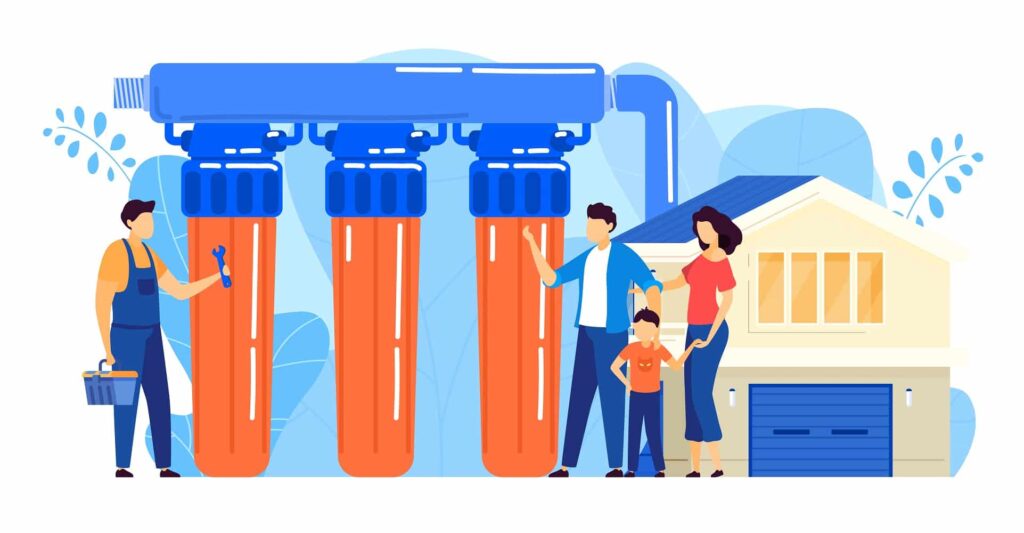While many families have hard water, the best water softener system can alleviate this common household issue. Hard water, which includes a high proportion of dissolved minerals such as calcium and magnesium, causes scale to build up inside your pipes and can cause damage to the heating components in appliances such as dishwashers and washing machines. Not only does this reduce the life of your devices, but it also reduces your energy bill savings and detergent longevity (even possibly as much as 50 percent). Utilizing a water softener can assist you in avoiding these issues.
Water softeners employ ion exchange technology to remove chemicals or ions from the water. Essentially, a salt brine solution is passed through a resin base, where calcium and magnesium ions are exchanged for soluble sodium ions. They are not water filters because they do not remove germs or viruses. There are also salt-free solutions; however, their scientific basis is less specific.
How do Water Softeners System?
The water softeners system attracts and captures particles responsible for water hardness, specifically calcium and magnesium, utilizing coated resin beads (which have a negative ion charge) (which have a positive control). While the treated water runs through the resin bed and your home’s plumbing system, these particles adhere to the resin.
What to Consider When Purchasing a Water Softener
Type
Water softeners are classified into three types: salt-based softeners, salt-free softeners, and electromagnetic softeners. For domestic use, salt-based softeners are the most common. They do, however, require constant care and upkeep. The homeowner will need to regularly acquire sodium chloride or potassium chloride and maintain a full salt holding tank for regeneration. Resin media has an average lifespan of around ten years; however, this varies according to water quality and usage.
Electromagnetic and salt-free water conditioners do not remove calcium and magnesium ions from the water. Rather than that, these systems neutralize the particles, rendering them incapable of adhering to plumbing fixtures and appliances. The advantage of conditioned water is that it prevents scale build-up without purchasing and adding salt to the system regularly.
Capacity
The capacity of a water softener is typically expressed in terms of the number of particles that the device can filter before requiring a regeneration cycle. Capacity typically ranges between 28,000 and 80,000 grains for modest water softeners and 80,000 for heavy-duty softener systems. A typical water softener for a three- or four-person home typically contains between 32,000 and 40,000 grains.
Valve of Bypass
A bypass valve enables you to direct water away from the best water softener system, which can be advantageous in various circumstances. When activated, the valve controls water flow from your water line past the softener system, allowing you to operate on the softener without shutting down the entire house’s water supply.
A bypass valve is also occasionally advantageous when a large volume of water is used, and water hardness is not a concern. For instance, if you’re conducting yard maintenance, diverting water from the softener may make sense. This prevents the resin media from filtering water inefficiently and shortens the time between regeneration cycles.
Top 8 Best Water Softeners Systems in 2023
The best water softeners systems on the market are listed here.
1. GE GXMH31H 31,100 Grain Water Softener and Filter in One
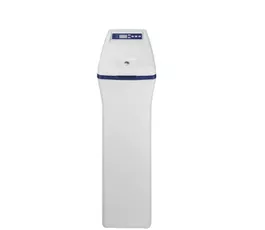
The best water softener system can lower the mineral content of your water while also enhancing the smell and flavor of your drinking water when used in conjunction with water filtration components. In a single tiny appliance, the GE GXMH31H Water Softener and Filter in One accomplish both jobs.
This best water softener system can reduce hard water by up to 120 grains per gallon and filter 31,100 grains before regeneration. Regeneration takes only 105 minutes. However, it consumes a lot of water (54.7 gallons) when compared to other softeners. In addition to softening water to your specified hardness utilizing a unique blending valve, the GE Water Softener and Filter in One eliminates chlorine taste and odor in your water.
2. GE GXSH40V Water Softener
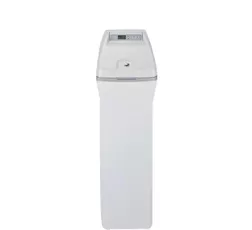
This famous house’s best water softener system is “smart” and “efficient.” The GE GXSH40V has a grain capacity of 40,200, which is sufficient for most four-person homes. It incorporates GE’s SmartSoft technology, enabling the system to recognize water usage trends and adjust regeneration schedules to ensure that softened water is available during high usage periods. Regeneration takes approximately 2 hours and requires 37 gallons of water.
One of the best water softener system distinctive characteristics of the GE GXSH40V is its blending valve, which allows you to tailor the hardness of your water to your specific requirements. Using the digital controller, you may modify water hardness levels to your liking, reducing salt usage or enhancing water softness. The controller will also offer you a ‘Days to Empty’ indicator, which will tell you when it’s time to replenish the 230-pound capacity salt bin.
3. Aquasure Harmony Water Softener with Fine Mesh Resin for Iron Remova
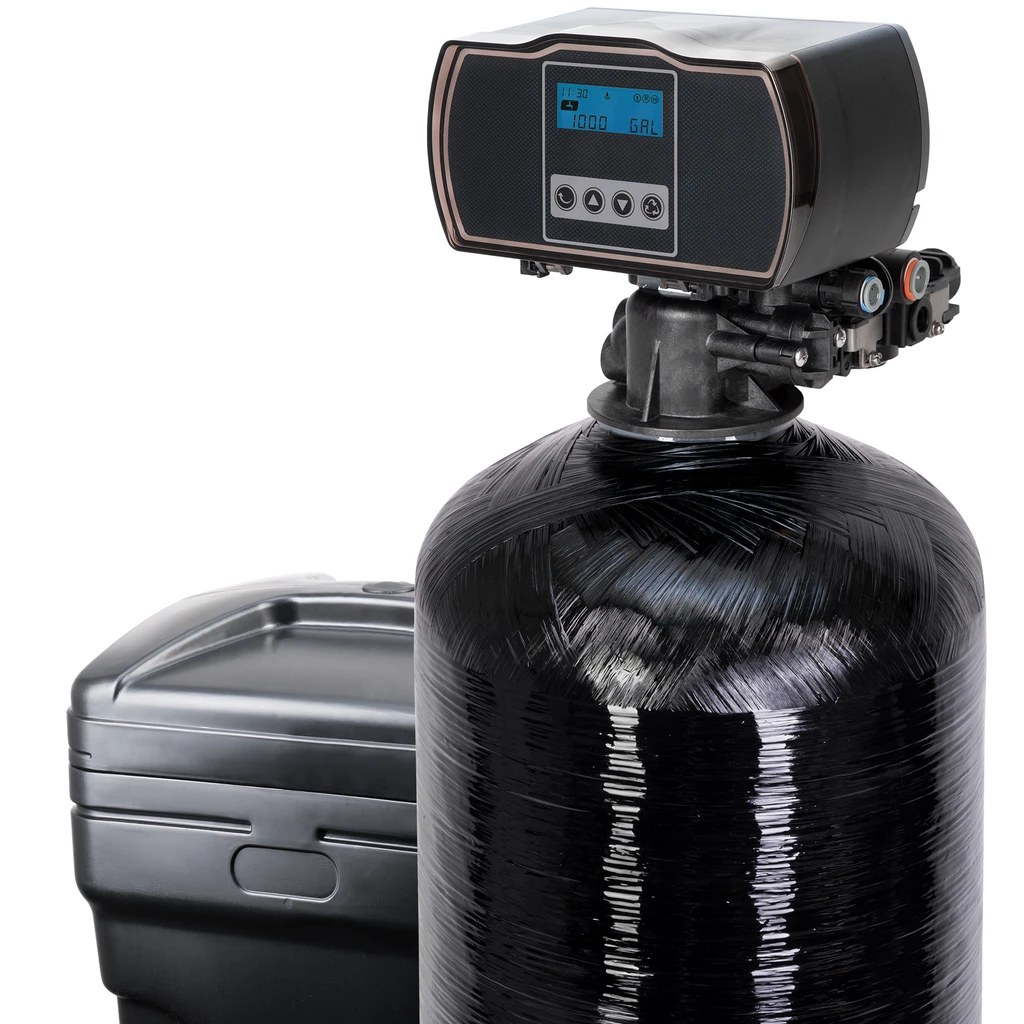
An iron filter is generally included with a water softener for well water. This extra filter caters to the specific needs of well-watered families by decreasing the appearance of iron and rusty stains on sinks, tubs, and toilets. The Harmony series from Aquasure is outfitted with fine mesh resin that catches minerals, including calcium, magnesium, and iron.
It can filter water with a hardness of up to 110 GPG. Choose between the best water softener system that can filter 32,000, 48,000, or 64,000 GPG before requiring regeneration. The regeneration cycle takes 98 minutes and utilizes 40 gallons of water. The Aquasure contains a digital control console that monitors water use and manages the regeneration frequency, regardless of tank size.
4. Pelican Water 80,000 Grain Heavy Duty Water Softener
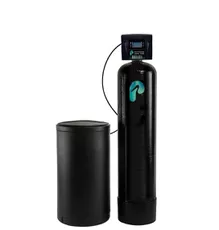
5. Waterboss Model 900 36,400 Grain Water Softener
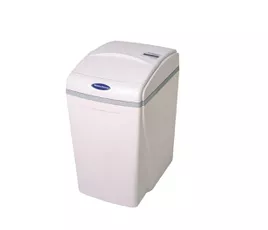
While water softener systems can easily exceed $500 or $1,000 depending on filtering capabilities and amenities, the Waterboss 900 is a cost-effective option. This low-cost water softener system is small and inexpensive, yet it can meet the water needs of a typical three-to-four-person family.
This best water softener system has a grain capacity of 36,400 and can filter water with a hardness of up to 90 GPG. The regeneration cycle is impressively quick, taking only 24 minutes and consuming only 17.2 gallons of water. An easy-to-use computerized controller controls the settings and regeneration of the softener. Like many other best water softeners systems, this tiny machine incorporates a bypass valve to extend the life of the media.
6. Rheem RHS32 Preferred 32,000 Grain Water Softener
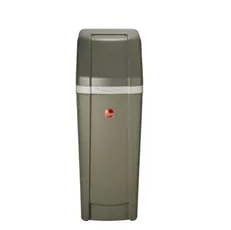
Salt-based water softeners are a common sight in houses with hard water. The Rheem Preferred 32,000 Grain Water Softening is a popular and moderately priced salt-based softener for average-sized families. Rheem’s device captures calcium and magnesium particles from hard water using a treated resin bed.
The system will renew after digesting 32,000 grains, which will take 2 hours, and 24 gallons of water. The salt storage tank stores 175 pounds and must be refilled regularly, but the system has a low salt sensor to inform you when the salt supply is running low. Rheem has outfitted this model with technology to monitor water usage trends and optimize regeneration cycles to save salt, water, and electricity.
7. Aquasana Salt-Free Water Conditioner for Tankless Water Heaters
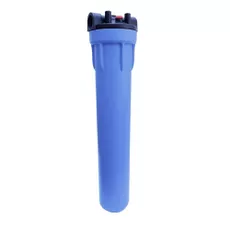
Aquasana water conditioner, which does not require the use of salt, preserves and extends the life of your tankless water heater, appliances, and pipes. The system employs proprietary SCM technology to naturally prevent scale accumulation by converting dissolved hard minerals into inactive microscopic crystal particles that travel harmlessly through your water and down your drain.
The mechanism operates without the usage of salt or energy. It is a straightforward system connecting to your water lines and softening the water before reaching your faucet. The filters have a two-year lifespan and can be replaced for a fee. It’s a low-maintenance gadget that must be checked when the filter’s life is approaching its end.
8. ScaleBlaster SB-75 Electronic Water Conditioner
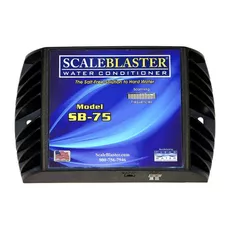
ScaleBlaster SB-75 is a small device, measuring only 4.75 x 7.5 inches. In comparison to bigger conventional salt-based water softeners, installation is easy; a coil is wrapped around the incoming main water line and plugged into a nearby electrical outlet. Some electric best water softener systems may only be used with certain types of water pipes. However, the SB-75 is compatible with copper, PVC, CPVC, and PEX pipes.

